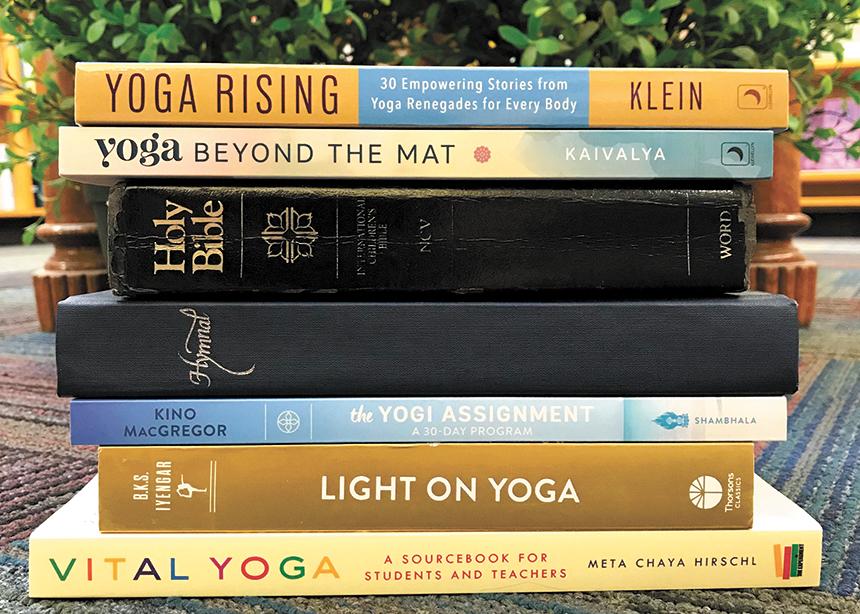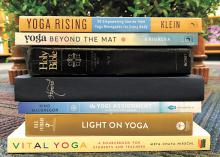For many years the church provided me with a place where I felt like I belonged.
I was 14 years old when I “decided” to get baptized. Coming from a Mennonite/Anabaptist background, I always respected the time in people’s lives when they would announce their dedication to the Christian faith and get aligned into a seemingly perfect life of servanthood, humility and significant personal integrity.
That said, are most teenagers ready to align themselves to one moral philosophy for the rest of their lives while navigating puberty, part-time jobs, relationships and finding their identity?
One November evening around my 13th birthday, my pastor visited our house and asked if I was interested in attending baptismal classes. I said yes, and six months later I was professing my commitment to the Mennonite faith in front of my dear congregation.
It was a good choice. My congregation nurtures many progressive Christians who walk the talk and demonstrate a kind faith built on love. They embrace many values I align with: authentically welcoming the LGBTQ community in church, recognizing the ecological crisis, acknowledging their role as settlers in European colonialism and actively looking for ways to promote peace in our local community.
I can credit my 14-year-old self on having wisely shared in my testimony: “This decision doesn’t mark the pinnacle of my faith, but rather the beginning of a lifelong journey.” Looking back, it was a great life path to take to get through those tricky years of “teenagehood” mostly unscathed, full of sunny experiences that when dwelled upon make me question why I don’t attend church anymore.
Matthew Remski, a prophetic, social justice-oriented yogi, relates to this feeling in his essay in 21st Century Yoga: Culture, Politics, & Practice. Remski describes a “church relapse.” After attending a moving service where he was struck by the generosity, support, sacrifice and social capital of his old congregation, he asked himself, “Was this the church I’d left so many years before in a storm of disillusionment and cynicism? A place with such kindness, such organized empathy? What had I replaced it with? A solitary, countercultural path. I’d developed my breath, my internal observer, powers of inquiry. But now I should probably get in line for the Tuesday blanket,” referring to a program at his former church.
When high school finished, I entered young adulthood: travelling, working, learning, moving. Suddenly, attending a church became a choice to make. It was no longer the default place to be on a Sunday morning, no longer a default congregation with familiar friends and families. I found myself wondering, is the investment involved in dedicating myself to a new church community really worth it?
While yoga first emerged in a purely athletic form for me, it didn’t take long for it to turn into more than just exercise. While developing a basic sense of strength and ease in my physical being, it also helped me develop a stronger, more relaxed emotional and mental quality. As I explored positions of courage, curiosity and grace on the mat, I experimented in how to posture those same traits in my life off the mat.
Somewhere along the way, the words of peace activists like Thich Nhat Hanh and mystics like Richard Rohr, as well as ancient and modern-day yogis, began to enrich my understanding of spirituality more than verses in the Bible. Life experiences, both terrible and wonderful, caused me to cultivate gratitude towards the Creator, but at the same time to be driven into scepticism towards a patriarchal, dogmatic, fear-loving Lord.
As I encountered contradictions to my teenage understanding of faith, yoga offered a contemplative approach to spirituality. This was a welcome practice when compared to the black-and-white rules of traditional Christianity.
I found new solace in my yoga practice. However, no spiritual community is perfect. While my yoga practice has nurtured me as an individual, it does not fill the void that a strong church community can provide. And rest assured, the maturing western yoga establishment has familiar faults as an institution. It has tainted reputations, leaders who transgress in the public eye, masses who feel excluded by high standards and a clique-like community. There are many camps with opposing beliefs and unwavering principles that create a divide among yoga’s practitioners. After class there is little fellowship in the studio, rarely a potluck or coffee time.
It’s hard to foster spiritual communities in which people can show up, as they are, and be authentically seen. What I like about my pursuit of yoga is that I am more kind to myself and more kind to others. It fills my cup so that it might overflow.
Today I look for a spiritual community that has some theological range of motion and flexibility. A place that lives, speaks and acts from its heart as much as its head. A place where you can belong in mind, spirit and body.
Sarah Steiner, 26, works at a software start-up by day and is a registered yoga teacher by night. She lives in Kitchener, Ont., with her husband, Jono Cullar. A longer version of this article originally appeared on pastorsinexile.org.
More on mental health:
‘Acceptance without exception’
Suicide isn’t painless
Meeting the mental health needs of students
‘Poetry and art for mental health’
Resilience Road leads to mental health for women





Comments
Sarah, it is a dangerous thing to connect with spirituality apart from the One True Living God. Please consider that what you are looking for can be found only in God the Father, Son and Holy Spirit. It is my sincere hope that you will find His truth in His Word and come to understand that all other spiritual philosophies are counterfeits of Satan, the father of lies.
This is true; there are some very dangerous deceptive spirits associated with yoga. It may seem harmless, but it is a gateway for demonic activity within the church. Out of concern for other young adults I would ask: are you sure that you are born again, or are you still seeking to fill your "God void" with whatever else that you can find?
I did, however, appreciate what Sarah wrote about finding a genuine sense of community in the church setting more than anywhere else. You know why that is? Because the Holy Spirit is present there. Jesus said that "wherever two or more are gathered together in my name, there I am in the midst of them" (Matt. 18:20). This being said, the Holy Spirit is not exclusive to just a church gathering, or a specific denomination, but is always present in the life of the believer. He is our guide.
1 Timothy 4:1 speaks expressly to the dangers of new age spirituality being welcomed into the church: "Now the Spirit speaketh expressly, that in the latter times some shall depart from the faith, giving heed to seducing spirits, and doctrines of devils."
I pray for the people of the younger generation of the church that their eyes would be opened to the light of the gospel and that they can return to the one true living God--Jesus Christ--before it is too late! I would love to see a genuine revival in the Mennonite Church rather than just catering to every person's fleshly desires to try and expand the fold.
Jesus is a good Lord, and he is enough!
Sarah, this was truly an excellent article! It connected with me quite a bit as someone who grew up in Mennonite churches and has great memories of those times. I am 26 as well and stopped going to church as life changed through young adulthood. I have become increasingly disconnected with spirituality in a formal church context but find it in my surroundings often. I do not discount the community built at church in my formation growing up and hope we can find ways to build that into a next generation in other ways. Connecting spirituality and community in ways that feel organic to us starts with conversations like these. I thank you for being willing and able to share your thoughts and experiences so eloquently.
I am sorry if your denomination has equated "black and white" rules with authentic Christianity. As a yogi and a lifelong Anglican, I can say truthfully that depth, peacemaking, community service, acceptance, and real community are all to found in the Church. Just maybe not the one you were raised in.
Add new comment
Canadian Mennonite invites comments and encourages constructive discussion about our content. Actual full names (first and last) are required. Comments are moderated and may be edited. They will not appear online until approved and will be posted during business hours. Some comments may be reproduced in print.